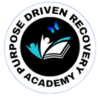Sometimes, you just need to turn it off and back on. Sobriety is your chance to hit the reset button, and neuroplasticity ensures the new wiring sticks. Bonus: no tech support needed, just patience and some deep breaths.
Sobriety is Like Resetting Your Inner Router
Ah, sobriety. It’s like resetting a router—frustrating at first but eventually miraculous when everything starts running smoothly again. I remember when things fell apart for me and I had to bite the bullet, (or maybe it was the cable cord?), and call someone to help me with the reset.
I couldn’t do it on my own. I tried and wasted a great deal of time, energy and frustrations and my husband was driving me crazy because he was in the middle of his 979th episode of Gunsmoke and I was messing it up. (Like the router going out was my fault!)
If you are tired of looking at the static in your life and you want a clearer picture without poking yourself with a sharp object, like you need to do with the reset button, then here’s the step-by-step guide to sobriety, tech-support style:
Step 1: Realize Something’s Not Right
Much like when your Wi-Fi starts buffering in the middle of streaming your favorite show, you might hit a point in life where things just stop working. Maybe it’s a pile-up of embarrassing moments, or perhaps you woke up realizing you were on the bathroom floor having been labeled “the porcelain queen.”
Or maybe it was waking up with a pounding headache in a jail cell, and realizing you have no idea how it happened or what you did. If you still haven’t pieced together that “something’s not right,” congratulations! You’ve unlocked a whole new level of denial.
Step 2: Locate the Reset Button
On a router, it’s a tiny, hidden button you need a paperclip to press. In sobriety, it’s the even tinier voice in your head whispering, “Maybe it’s time to stop” or ”remember what happened last time.” You can’t just poke the voice with a paperclip and poof it disappears, but recognizing it exists is a solid start.
For many of us we are reluctant to go to meetings like AA or Celebrate Recovery because we are too embarrassed or ashamed that “people will find out.” Well duh!! Do you think people in your life don’t already know?
And that’s what meetings are all about. Your fellow members will share with you a ton of one liners to keep in that head of yours that will eventually be screaming at you instead of whispering things like “nothing changes if nothing changes” and “play it to the end” and “what other people think of you is none of your business” to name a few.
They will also remind you of step 11 which says we“ sought through prayer and meditation to improve our conscious contact with God as we understood God, praying only for the knowledge of God’s will for us and the power to carry that out.” Another one liner is “you can’t, God can, let Him”
Step 3: Power Off and Wait
Ever noticed how tech support’s answer to everything is to turn it off and wait? Your Wi-Fi is down? Turn it off and wait. Laptop acting possessed? Turn it off and wait. Forgot your password for the 87th time? Okay, that’s on you. But the point is, they swear that a little downtime fixes almost anything.
Sobriety works the same way—step away from the chaos and wait. And no, “waiting” doesn’t mean savoring one last glass of wine while reflecting on life like you’re on vacation in the Bahamas. It means actually letting your system cool down and reboot.
How long does it take? Well, that depends. If you’re sitting there moaning, “This is too hard, I can’t do it,” those three minutes they tell you to leave the router unplugged will feel like eternity.
When I quit drinking, 24 hours felt longer than waiting in line at a Beatles reunion outdoor concert on a 90 degree day with not shade. but guess what? Your body and brain have been running on poisoned fuel, and that’s not an exaggeration.
Alcohol is the guest that shows up uninvited, destroys your brain cells, screws up your gut health, and leaves your emotions on a roller coaster ride with no brakes. (Wait, let me rethink that…. it is actually invited… by you…so you may want to rescind that invitation next time)
Sure, new habits take time, but so does everything worth having—whether it’s sobriety, decent Wi-Fi, or a body that is able to get up out of a wheelchair and run a marathon. So turn yourself off and wait. You’ve got this.
Step 4: Restart
Here comes the fun part: restarting. At first, sobriety feels like when the router comes back online but the Wi-Fi doesn’t. “Why isn’t this working?!” you’ll think.
But give it a second. Sometimes the signal takes a moment to reconnect with the universe. Now this isn’t where you pick up a glass of wine to celebrate the reboot. I know people who have celebrated a milestone sobriety anniversary date by going out drinking. SERIOUSLY??
The challenge of the restart is that by the time we get to middle age or beyond we have spent more than half of our lives living in chaos! We have used alcohol to cope, relax, celebrate, get happy and go to sleep and that’s a lot of rebooting to do!
The restart is like upgrading from Windows 10 to Windows 13 or going from an HP to an Apple and thinking everything is going to look and work just like the other gadget. It’s great once you get the hang of it but it is a drag learning how to do it all.
Step 5: New Password Required
Routers always work better after you update the password. Same goes for sobriety: change the settings! Swap “Party-Hard” for “Freshstart!” New routines, habits, and a healthier mindset will help keep your network stable.
Passwords must be unique just like we are. There are no two people that recover in the same way, in the same time frame, with the same hardrive that may still need to be tweaked along the way.
Many of us had some wiring messed up 40-50 years ago that may need to be fixed but that password will unlock it all but you might want to get some help with that.
We tend to keep using the old password over and over again because we don’t want to forget it! When it comes to sobriety, sometimes “the good old days” are best left in the recesses of your mind or gotten rid of all together so you don’t start ruminating on how fun it would be to do that again.
Step 6: Call for Backup When Needed
If you can’t get the router working, you call tech support. And in sobriety, sometimes you need your own help desk—a friend, a support group, or even that guy who always posts inspirational memes on Facebook. You can find recovery meetings all over the internet, 24 hours a day.
You can go incognito so no one will know you are the President of a substance abuse treatment facility that teaches people how to stay sober every day. Just google where do I find alcohol recovery online meetings and you will find tons of resources. (or you can message me and I will send you a resource list and get you lots of other resources to help.)
Hopefully you also have a church family that is loving and accepting and a pastor who is there for you to listen to you and give you some encouragement from the bible. Keep in mind that there are many other people, even in your own church, that are hiding in plain sight.
You just don’t know it and you won’t find out until somebody breaks the silence. Yes it may seem like the crystal cathedral crashing down on you but let me tell you, sharing your story is healing to you and others. Hey…that’s why I am here!
Final Thoughts: Smooth Connection
Sobriety, like a perfectly reset router, allows everything to work better. Your energy flows, your relationships strengthen, and suddenly, you’re streaming the best version of yourself without buffering. Sure, you’ll still have the occasional glitch, but , even routers need updates now and then.
So here’s to sobriety: the ultimate life reset button. Now, where’s that paperclip?
Join us in your journey by clicking on one of the links to services!
Prayers and Blessing to you!
Linda
Join my free facebook group and get 30 days of my daily meditations when you agree to the group terms.

Linda is an award-winning Licensed Counselor and Certified NLP and CBT Life Coach specializing in addictions. She is a best-selling author, speaker and corporate trainer




